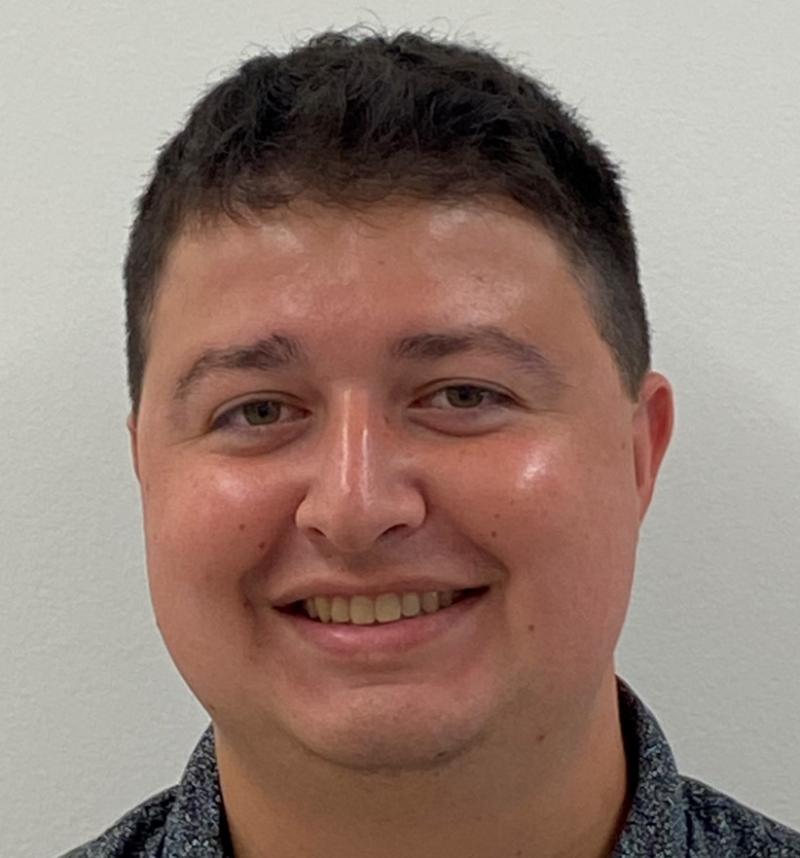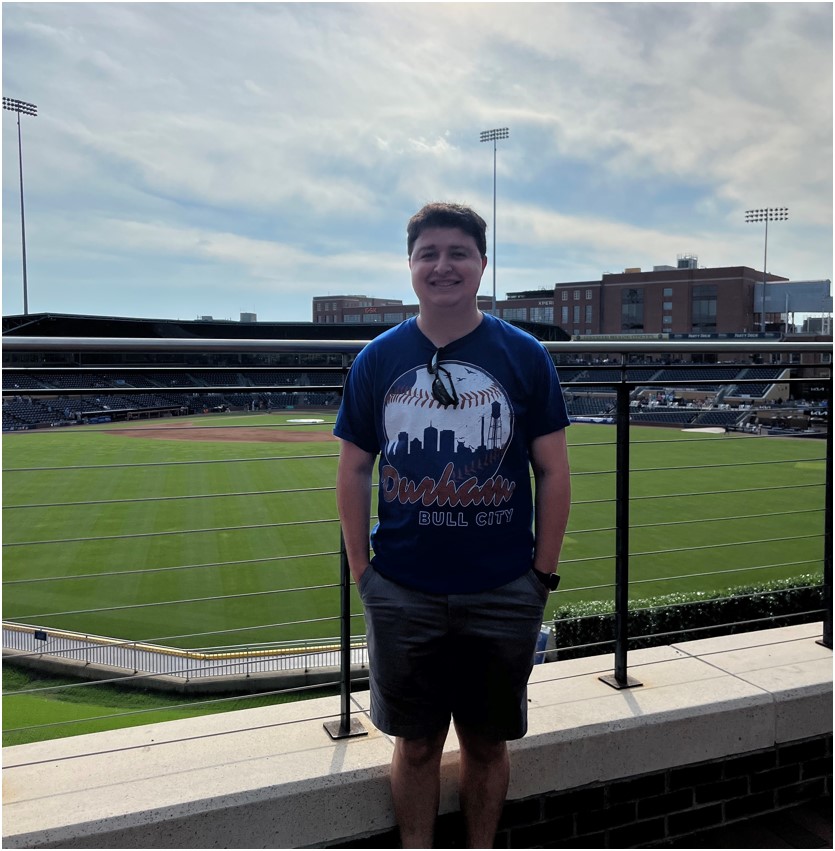
Silas Buck, PhD, first fell in love with neuroscience during the earliest days of his undergraduate career, when he became fascinated with the complex biological reactions that were responsible for even his earliest lab experiments. Buck pursued this passion through graduate school, studying how dopamine neurons become vulnerable to degeneration in Parkinson’s disease. He then joined the lab of Laurie Sanders, PhD, where he’s helping to advance our understanding of tau pathology in certain types of Parkinson’s disease.
In his Spotlight interview, Buck talks to us about how his doctoral studies inform his current work. He also shares his hopes for a career where he can help develop new treatments for neurodegenerative diseases. Finally, Buck shares his loves of running, playing the guitar, and exploring North Carolina when he’s not at Duke.
What are your current responsibilities as a postdoctoral associate in the lab of Laurie Sanders, PhD? What does your typical day look like?
As a postdoctoral associate, my main responsibilities include 1) performing wet lab research, 2) collecting and analyzing data, 3) disseminating my work through publications and presentations, and 4) reading papers from others in my field and incorporating that knowledge into my own work. My typical day includes a combination of these tasks.
What project(s) are you currently working on in the Sanders lab, and how will that work help us better understand or treat Parkinson's (or other movement disorders)?
The goal of my research in the Sanders lab is to understand why we observe tau pathology in Parkinson’s patients with LRRK2 mutations. Understanding the connection between LRRK2 and tau aggregation can inform treatments for not just Parkinson’s patients with LRRK2 mutations, but all Parkinson’s patients, as tau pathology is observed in idiopathic patients as well.
How and when did you first get interested in neuroscience?
I first got interested in neuroscience working in a lab my freshman year of undergrad. Despite only learning basic procedures, I absolutely loved thinking about my data and what it means in the context of actual biological functions.
How did you decide to join the Sanders Lab?
I decided to join the Sanders Lab because during grad school, I had developed an interest in mitochondrial defects in Parkinson’s disease, and Dr. Sanders is a leader in that field. I also absolutely loved interviewing with her and the lab, they are an exceptional group.
What was the focus of your doctoral work, and how does that background inform your current work?
For my PhD, I investigated why some dopamine neurons are more vulnerable to degeneration in Parkinson’s disease compared to others. Through this work, I developed a love for learning about cellular and molecular mechanisms of dopamine neuron degeneration, so I am excited to continue learning more about the field while exploring a different scientific question in the Sanders lab.
What plans do you have for your future career? If you could have any job in the world, what would it be?
I hope to transition into an industry career after my postdoc. Specifically, I would like to become a scientist performing preclinical research and drug development for a pharmaceutical company, as I want to play a direct role in the development of therapies that can one day help patients suffering from neurological disorders.
What other passions or hobbies do you have outside of the Department?
Outside of the lab, I enjoy playing guitar (anything from classic rock to jazz) and running marathons. I am excited to explore all the great trails and races that North Carolina has to offer!
